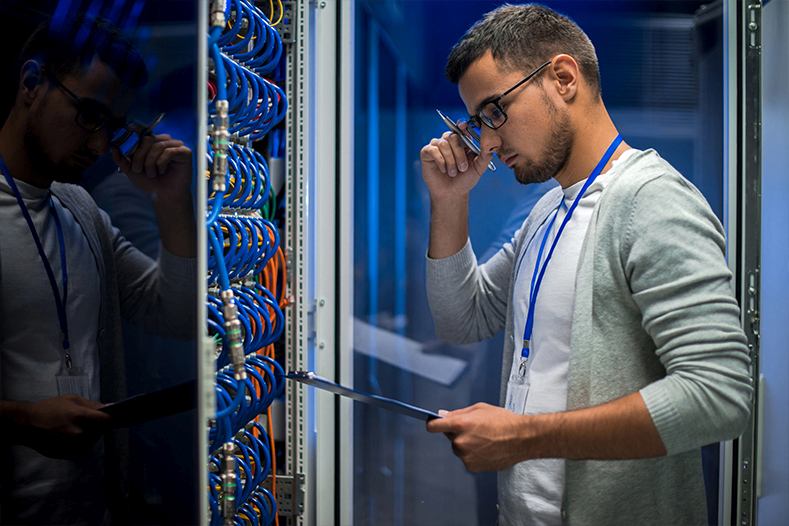
Server and Storage Arrays
The beating heart of corporate IT infrastructure
Why this is critical for every organization?
In the digital age, every organization relies on some kind of central computing infrastructure. While some organizations have moved fully to the cloud, many have chosen a hybrid approach – a smart combination of cloud services alongside on-prem infrastructure.
A hybrid approach allows organizations to enjoy the benefits of the cloud while maintaining direct control over sensitive information. It is ideal for organizations that need optimal access speed to information, face stringent security requirements, or operate independently of the Internet.
To get in touch, please leave your details and we’ll get back to you shortly.
The challenge of establishing local infrastructure
Setting up a server array and local storage is a multi-step task that requires careful planning:
- Planning and evaluation phase Including mapping business needs, comprehensive budget assessment, selecting the appropriate server and storage platforms, and planning the physical infrastructure of the local data center.
- Implementation phase Requires planning the transition strategy, defining the equipment, performing comprehensive acceptance tests (ATPs), and close support during the initial stages.
All this while accounting for your long-term vision – the solution must meet your organization’s needs for at least 3-5 years in the future!
Our expertise in the field
With over two decades of practical experience, we specialize in planning, configuring, and setting up server and storage infrastructures for organizations of all sizes – from small and medium-sized businesses to large, complex organizations.
Our expertise includes working with a wide range of leading manufacturers in the market, adapting solutions to different budgets, and designing systems that take into account expected future growth. We know how to “tailor” exactly the right configuration for each organization – from the required storage capacity, through system performance, to long-term savings considerations.
Our process focuses on three key principles:
- Careful planning and comprehensive definition of needs to ensure that the solution meets your organization’s current and future requirements.
- Smooth implementation and close guidance – we work hand in hand with your staff to ensure a seamless transition to ongoing operations.
- Ensuring a perfect fit for the organization’s profile – each solution is personally tailored to the client’s specific requirements, budget, and business goals.




